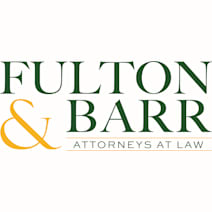Top Simpsonville, SC Personal Injury Lawyers Near You
Compassionate Counsel for the Injured that gets Results!
Free Consultation
Virtual Appointments
1415 Augusta St, Greenville, SC 29605
Choose Martin & Martin Attorneys, P.A. for qualified Personal Injury representation in the Simpsonville, South Carolina area.
Se Habla Español
Free Consultation
1310 Augusta St, Greenville, SC 29605
Getting legal representation for your Personal Injury issue is easier than you think. Let The Melonakos Law Firm in Simpsonville, South Carolina help you today.
Free Consultation
Virtual Appointments
215 W Stone Ave, Greenville, SC 29609
When you need legal representation for your Personal Injury, connect with Fulton & Barr Attorneys at Law in Simpsonville, South Carolina.
Se Habla Español
Free Consultation
221 E Floyd Baker Blvd, Gaffney, SC 29340
Get experienced legal representation for Personal Injury issues. Clients in Simpsonville, South Carolina can turn to Parker & Bain, LLC for help.
Se Habla Español
Free Consultation
Virtual Appointments
221 Hampton Avenue, Pickens, SC 29671
Personal Injury concerns can be addressed by R Scott Dover Law Offices. This practice offers legal representation for clients in the Simpsonville, South Carolina area.
Se Habla Español
Free Consultation
15 South Main St, Suite 501, Greenville, SC 29601
Hurley Law PA, a local Personal Injury firm with years of experience helping clients in the Simpsonville, South Carolina area.
650 East Washington Street, Greenville, SC 29601
Beattie B. Ashmore, P.A., a reputable Personal Injury firm representing clients in the Simpsonville, South Carolina area.
Free Consultation
Virtual Appointments
1306 S Church St., Greenville, SC 29605
Tonnsen Bach, LLC, a reputable Personal Injury firm in South Carolina, serves the Simpsonville area.
Se Habla Español
Free Consultation
910 E Washington St, Greenville, SC 29601
Other Nearby Offices
Select a local Simpsonville, South Carolina firm for diligent Personal Injury representation.
Free Consultation
1010 East North Street, Suite D-1, Greenville, SC 29601
Contact Howard Law Firm, P.A. in Simpsonville, South Carolina for experienced legal assistance in Personal Injury.
Free Consultation
307 Pettigru Street, Greenville, SC 29601
679 E Main St, Spartanburg, SC 29302
418 River Street, Greenville, SC 29601
550 South Main Street, Suite 400, Greenville, SC 29601-2541
220 N Main St, Ste 500, Greenville, SC 29601
1320 West Poinsett Street, Greer, SC 29650
104 South Main Street, Suite 700, Greenville, SC 29602
2 West Washington St., Suite 1100, Greenville, SC 29601
1650 E Greenville St, Suite A, Anderson, SC 29621
55 E. Camperdown Way, Ste 300, Greenville, SC 29601
1501 North Fant St, PO Drawer 1778, Anderson, SC 29622-1778
7 Mills Ave, PO Box 10285, Greenville, SC 29603
2 W Washington St, Suite 400, Greenville, SC 29601
104 S Main St, Suite 900, Greenville, SC 29601
509 North Broad Street, Clinton, SC 29325
Simpsonville Personal Injury Information
Lead Counsel independently verifies Personal Injury attorneys in Simpsonville and checks their standing with South Carolina bar associations.
Our Verification Process and Criteria
Ample Experience
Attorneys must meet stringent qualifications and prove they practice in the area of law they’re verified in.Good Standing
Be in good standing with their bar associations and maintain a clean disciplinary record.Annual Review
Submit to an annual review to retain their Lead Counsel Verified status.Client Commitment
Pledge to follow the highest quality client service and ethical standards.
What Is Personal Injury?
Personal injury is the legal term for harm or damage to someone’s mind or body, due to negligence, recklessness, or intentional actions. Personal injury cases allow people who have suffered harm or losses to get compensation for someone else’s wrongful conduct. These cases usually seek compensation for medical expenses, lost wages, pain and suffering, emotional distress, and other losses. Common types of personal injury cases include:
- Car, train, and boat accidents
- Police misconduct
- Food poisoning
- Libel and slander
- Fraud
- Invasion of privacy and trespassing
- Battery
- Spinal cord and sports injuries
How Can a Personal Injury Lawyer Help Me?
An experienced lawyer can give you the knowledge and backing you need to navigate the legal system and find the best possible results for your case. Because laws are different from state to state, speaking with a lawyer near you is critical in understanding all the elements of your situation and making the best decisions to move forward. A personal injury lawyer can help with:
- Legal counsel and guidance
- Investigating and gathering evidence
- Determining liability
- Evaluating damages
- Negotiating with insurance companies
- Litigation and trial representation
What Are the Top Questions When Choosing a Personal Injury Lawyer?
These questions can help you decide if you feel comfortable and confident that a lawyer has the qualifications, experience, and ability to manage your case well. Many lawyers offer free consultations that allow you to understand your options and get specific legal advice before hiring them. Top questions include:
- What experience do you have in handling personal injury cases?
- Have you previously represented clients with similar types of accidents or injuries to mine?
- What is your success rate in obtaining favorable settlements or verdicts for your clients in personal injury cases? How will you assess the strength of my case and determine its value? Do you have a network of experts, such as accident reconstruction specialists or medical professionals, who can support my case if needed? What is your approach to negotiating with insurance companies?
Tips for Hiring a Lawyer
Taking the time to find a lawyer who is right for you and will represent your best interests is an important first step in protecting your rights. Find a lawyer who understands your case, knows your needs and goals, and has the experience to get the best outcome. Things to do:
- Ask for recommendations
- Research lawyers online
- Schedule consultations
- Review experience and expertise
- Talk about fees and billing
- Trust your instincts











